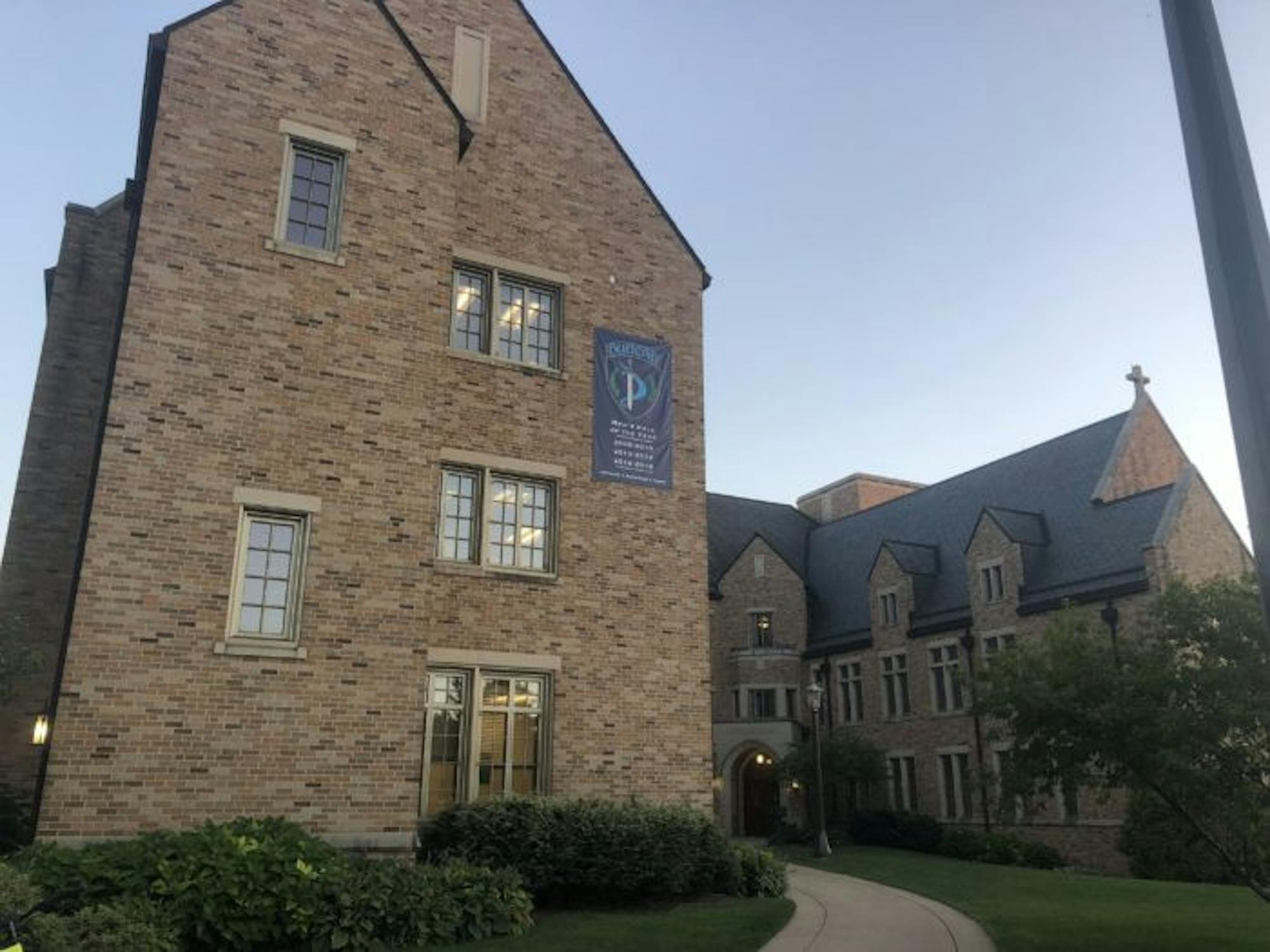Notre Dame prides itself on its long history on the communities built within its residence halls, placing an emphasis on the tradition of resident assistants — seniors who lead residence halls in community and relationships.
Senior Jack Harness said he accepted the offer to be a resident assistant in Duncan Hall this year before spring break. This was before the March 11 announcement in which all Notre Dame students were told not to return to campus as the threat of the coronavirus spread across the country.
“When I accepted, it was still normal school so I had no idea what [the fall] semester would look like,” Harness said.
Now Harness is directly in charge of managing the 39 students in his section — as well as overseeing the health and safety of the roughly 215 members of the residence hall during his weekly nights on duty — in the middle of a pandemic.
Director of residential life for residential education Bre Tornifolio said in an email that the primary role of resident assistants remains the same.
“They are responsible for forming community and building relationships and, even in the midst of the pandemic, they do so remarkably well,” Tornifolio said in an email.
According to Tornifolio, one student backed out of the resident assistant position due to personal health concerns.
“I fully support the decision and we were able to hire and train the new RA before the first week of classes,” Tornifolio said.
Harness said he feels that his role as a resident assistant has evolved to not only include enforcement of rules but also advocacy — to focus on the bigger picture.
“What I’ve tried to do is just communicate to the best of my ability to people in the section the gravity of the situation,” Harness said. “Obviously when I signed up to be a [resident assistant], I didn’t envision having to go around and tell people to put masks on and things like that, which obviously is now part of the job. But I think the more important part for me has been trying to be a leader and role model and try to communicate why it’s so important to follow the rules and why it’s a personal responsibility thing for everyone.”
Every year, newly hired resident assistants are required to complete training in the spring and a formation process upon returning to campus in the fall. This year, Tornifolio said resident assistants went through additional virtual training and informational sessions.
“We then brought the staff back to virtually participate in a week’s worth of training sessions and spent the first day discussing our adjustment to a COVID world and the racial injustices that are happening around us,” Tornifolio said. “We also went through the health and safety guidelines and operational procedures for the position.”
Senior Killeen McCans applied to be a resident assistant because she found her place in the Notre Dame community as a member of Flaherty Hall. In her current position as a resident assistant, she said she feels blindsided by the University since the rule changes regarding socializing within halls were announced.
“We have been given a lot of extra rules to enforce and a lot of extra situations to handle, and I don't think we’ve been given a lot of extra social, emotional or practical support,” McCans said. “And we don’t have any increased compensation. There's no hazard pay received, no information about what campus will look like if we get sent home, if we will get any reimbursements, and that is nerve-wracking.”
The current residential life protocol is that only residents of an assigned room may enter that room — a rule announced a week before undergraduates returned to campus. McCans said living in a single as a resident assistant has been difficult emotionally with the situation constantly changing.
“We don’t have a household so there’s nowhere in my dorm where I can go in private and speak with another [resident assistant] about how I’m doing or about stressful situations,” McCans said.
In addition, students living on campus have been told to limit non-essential off-campus travel, making connecting with peers that have moved off campus a challenge.
Elizabeth Lauer, a senior resident assistant in Pasquerilla East Hall and former resident of Breen-Phillips Hall, said she is grateful for the support system of hall staff.
“I was new to the hall so I didn’t really know anyone before I came in, but I get along with everyone else super well, and we’re all going through the same thing,” Lauer said. “Since we’re not supposed to interact on and off campus, it’s good to have each other to be friends with and spend time with. I’m really grateful for those relationships I’ve gotten to make over the last couple weeks.”
Prior to University President’s Fr. John Jenkins’ Tuesday announcement that gatherings would now be limited to 10 people, residence halls were able to host outdoor programming for the community. Harness said it was good to see all of the dorm members gathered safely this past week.
“One of the coolest things we’ve done so far is we had hall council outside in our courtyard,” Harness said. “We had a big projector set up with a big screen and speaker system and we were all spread out. And we had an incredible turnout, so that was really cool to see us all together.”
With the updated restrictions, resident assistants must once again come up with new ideas to foster community, especially with the first-year students, Lauer said.
“It’s tough just because like everyone’s kind of sick of Zoom after doing ‘Zoom University’ last year,” Lauer said. “They’re less eager to do it, but we’re finding ways to be creative.”













